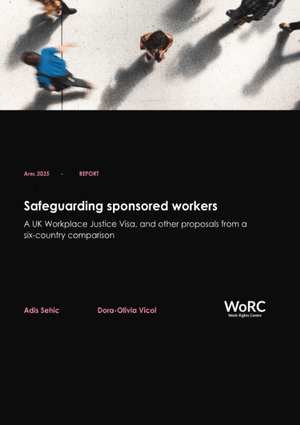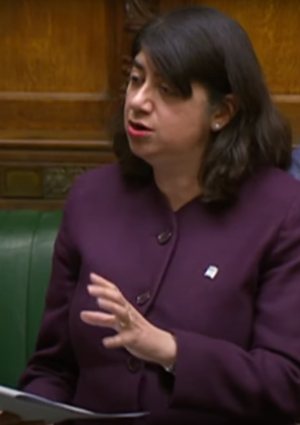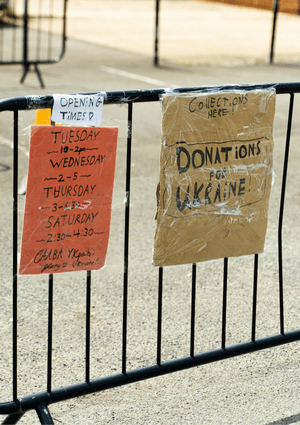Latest

Safeguarding sponsored workers: A UK Workplace Justice Visa, and other proposals from a six-country comparison
New analysis of six high-income countries’ immigration policies, spurs a coalition of over 130 migrants’ rights experts to write to the Home Secretary, calling on her to give migrant workers more time to change employers, take tougher actions against sponsors, and institute a UK Workplace Justice Visa.
Read moreRead more
New hiring requirements for care agencies will not solve the Health & Care Worker visa crisis
We have written to the Secondary Legislation Scrutiny Committee calling for greater scrutiny of these changes, and a broader package of reform to help the thousands of migrant care workers whose employers have had their licences revoked.
Read moreRead more
As fewer care workers immigrate, the risk of migrant exploitation in construction and hospitality grows
A rise in the number of sponsored visas issued to foreign-born tradesmen, hospitality staff and sales workers puts an increasing number of precariously employed migrant workers at risk of exploitation.
Read moreRead more
As Russia increases attacks on Ukraine, safe and legal routes for refugees are needed more than ever
On the third anniversary of the full-scale Russian invasion of Ukraine, and with attacks increasing, the UK must reopen routes to Ukrainian family members and consider longer-term settlement.
Read moreRead more
As evidence of exploitation of workers increases, the Seasonal Worker Interest Group calls for action
We have submitted evidence demonstrating the serious levels of abuse that workers are facing a submission to the Office of the Director of Labour Market Enforcement (ODLME) as part of the Seasonal Worker Interest Group.
Read moreRead more